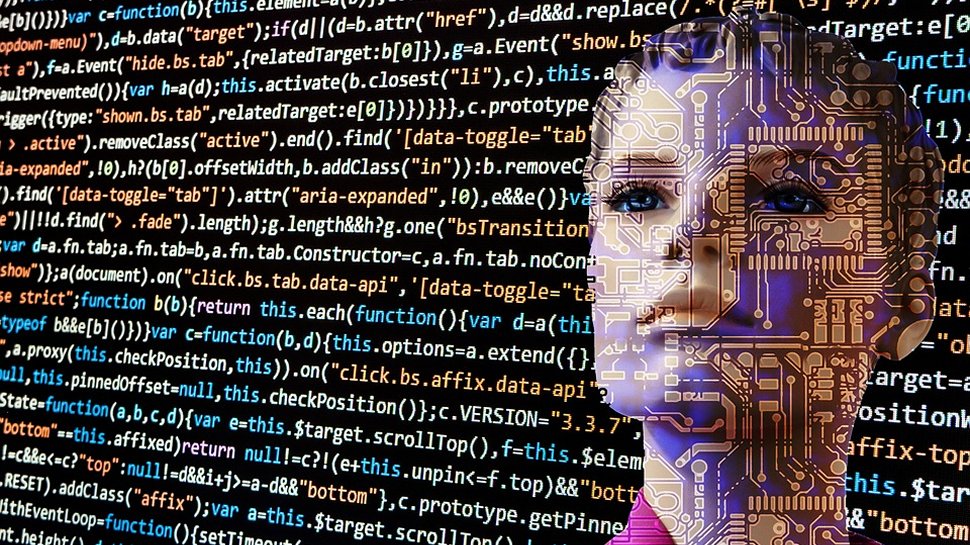AI could be key to tackling future global health crises
AI could be set up now to help in future

Sign up for breaking news, reviews, opinion, top tech deals, and more.
You are now subscribed
Your newsletter sign-up was successful
We are currently facing one of the greatest challenges in a generation, which has brought life as we know it to a halt. COVID-19 has infected hundreds of thousands of people, tragically taken the lives of many, and continues to spread at an alarming rate. It has caused markets to crash, countries to lockdown, and businesses to close.
All over the world, in the few stores that have been allowed to stay open, customers are panic-buying supplies, stockpiling on items, leaving little for those who cannot afford to buy in bulk. Needless to say, the implications of COVID-19 are wide-reaching, affecting us physiologically, economically and emotionally.
Alex Ribeiro-Castro is a Data Scientist and Senior Teaching Fellow at Imperial College Business School.
It’s in times like this, when facing a global humanitarian crisis, that weaknesses in diplomatic relations are exposed. We see a sheer lack of uniformity in the way governments respond to these challenges, as well as the absence of any real attempt at global collaboration to hamper the spread or worsening of these issues that affect us, and our economies, on a worldwide level. COVID-19 will undoubtedly have a severe and long-lasting impact on the global economy, plunging us into a worldwide recession – unquestionably a downside to having such an interconnected and global economy.
Dealing with crises
When staring a global humanitarian crisis in the face, we cannot simply hope for it to be over quickly. We need to look for answers as to how we can prevent or tackle future pandemics one such approach, that would leverage current cloud computing and cloud storage technology and apply AI to the data collected.
Already, in the UK alone and across the globe, we are witnessing ways in which AI can help to address the current health crisis. From the creation of a common data set – available on the Google-owned Kaggle, an online community for data scientists, in which researchers and hobbyists from all over the world can access tens of thousands of COVID-19-related resources, in order test their prediction models – to the NHS partnering with tech giants to help slow down the spread of fake news.
We’ve also seen the creation of databases containing the cases of illnesses. These databases enable the sharing of anonymized and aggregated information on cases across the globe, focusing on data trends rather than the specific details of individual cases. Acquiring such information is clearly possible as crowdsourced data becomes more commonplace. Every day, people and businesses use platforms for sharing information, such as Amazon’s Mechanical Turk, or Google-owned Waze.
In both cases, information is crowdsourced for the common good. In future humanitarian crises, the ability to acquire this information will prove vital, as often governments have a delayed access to data. Being able to source this information, and then make it accessible globally will be pivotal in limiting the spread of future health pandemics, as the availability of these insights can provide governments with the data needed to make decisive, and potentially life-saving, decisions quickly.
Sign up to the TechRadar Pro newsletter to get all the top news, opinion, features and guidance your business needs to succeed!
Platforms
Already, we’re seeing the existence of platforms for the sharing of information, in order to directly tackle COVID-19. COVID Symptom Tracker, an app, created and published by a consortium consisting of ZOE, the Welcome Trust, and Guy’s and St Thomas Biomedical Research Centre, is available for people, with or without symptoms, to share valuable information with researchers and the NHS.
In a world that has experienced an explosion in information, we need to see more governmental and state organisations utilizing AI and Big Data if we’re to hope to curb future humanitarian crises. We have the skills and the resources to develop technologies that can help track and analyse illnesses, which will prove incredibly useful in the diagnostic process. Global health crises like this highlight the pre-existing market for health-tech innovators, which could both speed-up and lower the cost of the diagnostic process.
Outside of aiding the tracking of COVID-19, AI has been fundamental in tackling the spread of fake news, published on social media to cause panic. A number of tech giants have partnered with bodies, such as the previously-mentioned NHS, to moderate information. RavenPack, a leading big data analytics provider for financial services, has been monitoring the spread of news around COVID-19, providing key information around detected fake news levels, as well as media exposure to the virus.
AI at work
Moreover, even before the outbreak of COVID-19, organisations such as Microsoft, Google and Facebook have been using AI to tackle fake news. For example, the Microsoft-owned Bing, alongside a number of other search engines, have altered their algorithms so that when a user searches the answer to a question, a variety of views and answers are given.
This provides the user with a sense of perspective that wouldn’t have previously been offered, and demonstrates the role AI can play in helping in the slowdown of wider predatory behavior of hackers and scammers, preying on the fear caused by COVID-19. AI can also be used to assist in the management of risk around humanitarian crises, in the same way that it’s currently used manage risk within the financial services sector.
Being able to assess the risk of a future pandemic, or global crisis, is becoming all the more important as human-driven environmental changes increase the likelihood of natural disasters, and influence the recurrence of health pandemics. Climate scientists have access to data and technologies to accurately record and monitor weather patterns.
If we’re to prevent, or at least limit the impact of future humanitarian crises we need to make these datasets and technologies more quickly available to epidemiologists to allow for real-time predictions on the movement of contagion patters. Health sensors could be of great help here.
Future health pandemics
If we're to respond and prevent future health pandemics, and other major pandemics, AI is likely to become part of the decision making toolkit of policy makers and executives. AI can augment humans skills by applying say non-parametric methods to identify complex patterns in high-dimensional data -- which is hard for a human being to do. We have the resources and technologies to monitor the spread of diseases in much the same way that we track the weather; are able to collate information taken from cases across the globe to help in the diagnostic process; and have already seen the role that AI can play in tackling fake news. However, if the use of AI and Big Data analytics is to be successful, it needs to be used as part of a globalized response to the crisis.
There will undoubtedly be political barriers to this globalized response – governments will need to act with unfettered transparency. Nonetheless, considering the roll it has played so far in helping to tackle COVID-19, AI is well positioned to help curb the impacts of future global crises.
- We've featured the best business intelligence tools.
Alex Ribeiro-Castro is a Data Scientist and Senior Teaching Fellow at Imperial College Business School.
He is a Data Science professional with a passion for product development, and education.
Alex have delivered projects in tech companies from many different sectors, including energy, finance, health, education and more recently retail.
